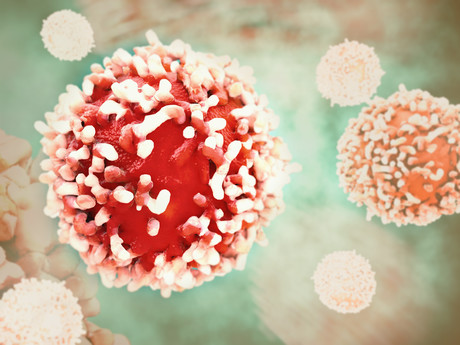When it comes to lymphoma patients, variety is the spice of life

University of Queensland researchers have found that patients with non-Hodgkin lymphoma are most likely to survive if they have a rich variety of T-cells. Their study has been published in the journal Clinical Cancer Research.
T-cells are known to fight off infections such as influenza, but recent findings indicate that they are also capable of killing cancer cells. But while melanoma patients typically respond well to therapies when they have groups of dominant T-cells, Dr Colm Keane and his team have shown that lymphoma patients with a highly dominant T-cell type actually have lower survival rates than those with a greater diversity.
“If the tumour mutated to avoid a dominant T-cell, the immune system was left with fewer and weaker options to mount an effective response,” Dr Keane said.
“You could compare it to a sports team who lose their only star player.”
The study saw the researchers conduct biopsies on 92 patients with diffuse large B-cell lymphoma (DLBCL) at the Princess Alexandra Hospital and Canberra Hospital. Between them, these patients had around 2500 different T-cells, the codes for which are now in the hands of Dr Keane and his team.
“We now know that T-cell composition for specific tumour types should be factored into the design of future immune-based therapies,” Dr Keane said.
“We are working to find which types of T-cells are associated with the best outcomes for lymphoma patients.
“We hope then to be able to produce those in the laboratory and give them back to the patient to improve their response and chances of survival.”
Noxopharm says paper reveals science behind its immune system platform
Clinical-stage Australian biotech company Noxopharm Limited says a Nature Immunology...
Neurosensing/neurostimulation implants session to be held on Monday
On Monday, a session at UNSW Sydney will include people who are benefiting from bioelectronics...
argenx and Monash University partner against autoimmune diseases
To advance a pioneering molecule for autoimmune diseases, global immunology company argenx has...



